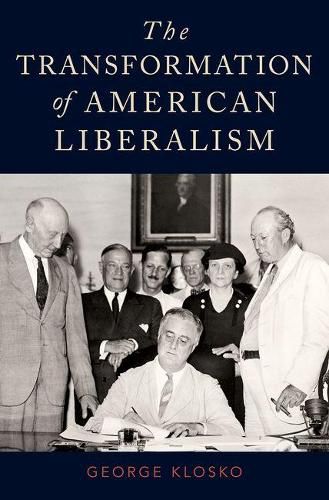Readings Newsletter
Become a Readings Member to make your shopping experience even easier.
Sign in or sign up for free!
You’re not far away from qualifying for FREE standard shipping within Australia
You’ve qualified for FREE standard shipping within Australia
The cart is loading…






With the passage of the Social Security Act in 1935, the US government ushered in a new era of social welfare policies, to counteract the devastation of The Great Depression. While political philosophers generally view the welfare state to be built on values of equality and human dignity, America’s politicians, beginning with Franklin D. Roosevelt, argued on different grounds. From the beginning, Roosevelt based his defense of the welfare state on the individualist, or Lockean premises inherent in America’s political culture. As a result, he not only encouraged the United States’ commitment to individualism, but also contributed to distinctively harsh American stigmatization of welfare recipients.In The Transformation of American Liberalism, George Klosko explores how American political leaders have justified social welfare programs since the 1930s, ultimately showing how their arguments have contributed to notably ungenerous programs. Students of political theory note the evolution of liberal political theory between its origins and major contemporary theorists who justify the values and social policies of the welfare state. But the transformation of liberalism in American political culture is incomplete. Individualist values and beliefs have exerted a continuing hold on America’s leaders, constraining their justificatory arguments. The paradoxical result may be described as continuing attempts to justify new social programs without acknowledging incompatibility between the arguments necessary to do so and American culture’s individualist assumptions. An important reason for the striking absence of strong and widely recognized arguments for social welfare programs in American political culture is that its political leaders did not provide them.
$9.00 standard shipping within Australia
FREE standard shipping within Australia for orders over $100.00
Express & International shipping calculated at checkout
With the passage of the Social Security Act in 1935, the US government ushered in a new era of social welfare policies, to counteract the devastation of The Great Depression. While political philosophers generally view the welfare state to be built on values of equality and human dignity, America’s politicians, beginning with Franklin D. Roosevelt, argued on different grounds. From the beginning, Roosevelt based his defense of the welfare state on the individualist, or Lockean premises inherent in America’s political culture. As a result, he not only encouraged the United States’ commitment to individualism, but also contributed to distinctively harsh American stigmatization of welfare recipients.In The Transformation of American Liberalism, George Klosko explores how American political leaders have justified social welfare programs since the 1930s, ultimately showing how their arguments have contributed to notably ungenerous programs. Students of political theory note the evolution of liberal political theory between its origins and major contemporary theorists who justify the values and social policies of the welfare state. But the transformation of liberalism in American political culture is incomplete. Individualist values and beliefs have exerted a continuing hold on America’s leaders, constraining their justificatory arguments. The paradoxical result may be described as continuing attempts to justify new social programs without acknowledging incompatibility between the arguments necessary to do so and American culture’s individualist assumptions. An important reason for the striking absence of strong and widely recognized arguments for social welfare programs in American political culture is that its political leaders did not provide them.